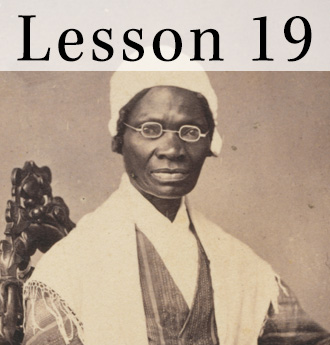Lesson 19: How does the Constitution protect your right to equal protection of the laws?
King, Martin Luther, Jr. (1929-1968) Religious leader and social reformer. Major leader of the civil rights movement in the 1960s, he was an advocate of nonviolence. Formed the Southern Christian Leadership Conference in 1957 and became its president. Won the Nobel Peace Prize in 1964. Assassinated in 1968.
Marshall, Thurgood (1908-1993) Justice of the Supreme Court, appointed in 1967 by President Johnson. Great-grandson of slaves, he became involved in the civil rights movement. As counsel for the NAACP, he successfully pleaded the case of Brown v. Board of Education in 1954. First African American to serve on the U.S. Supreme Court.
Parks, Rosa (1913-2005) Rosa Parks first came to national prominence as a civil rights activist when, on December 1, 1955, she refused to give up her seat on a Montgomery, Alabama, city bus to a white man. Her refusal to get up led to her arrest. I On the day of her conviction, December 5, 1955, leaflets were spread across Montgomery urging African-Americans to stay off the buses. At enormous personal sacrifice, African Americans maintained the bus boycott for a total of 381 days, severely damaging the bus company's finances. Ultimately, bus segregation of the sort practiced in Montgomery was ruled unconstitutional by a federal court and Montgomery rescinded its racist law.




